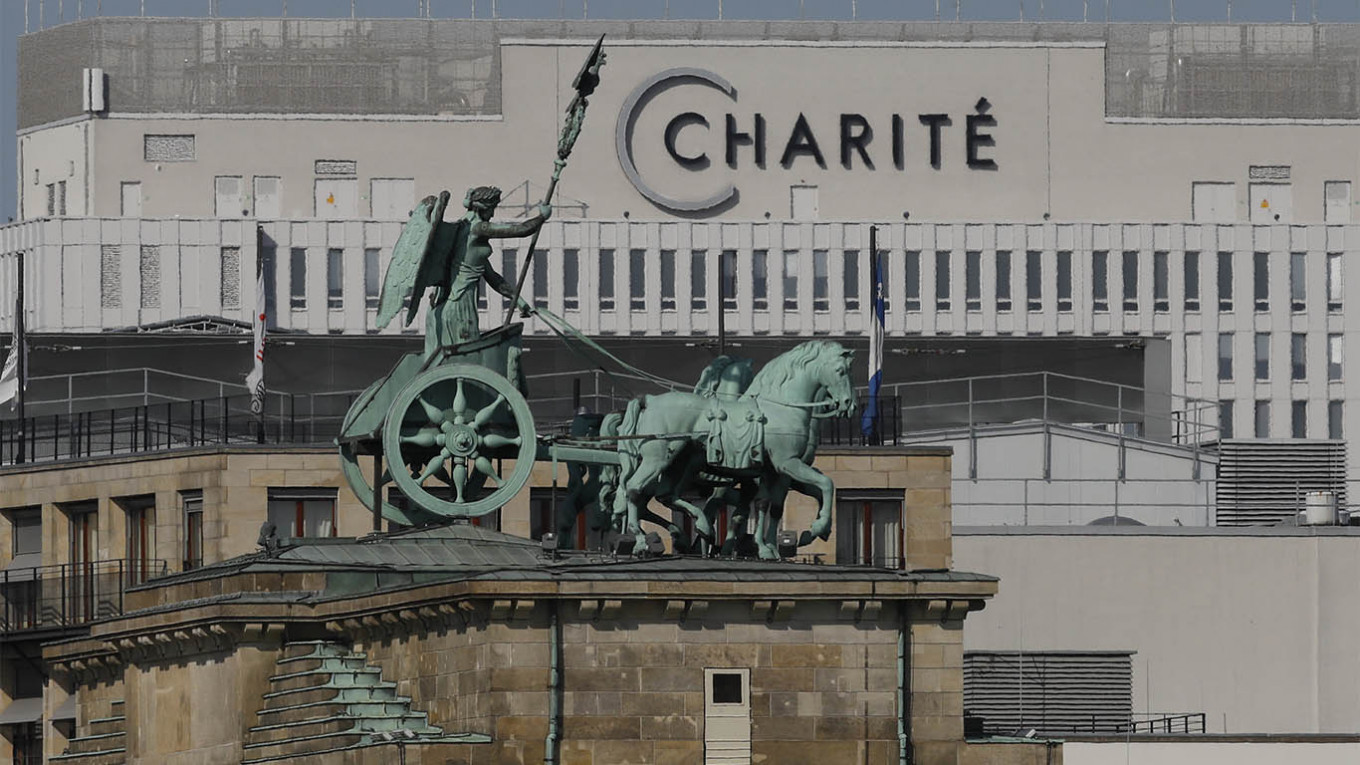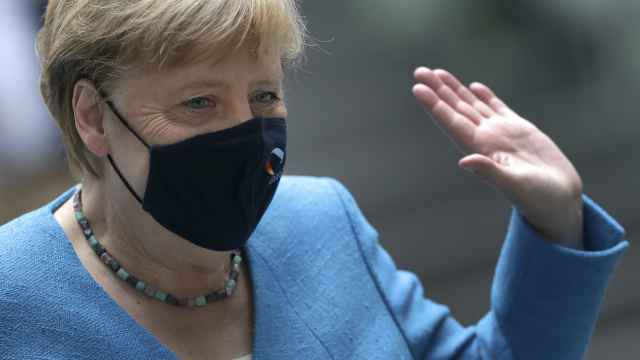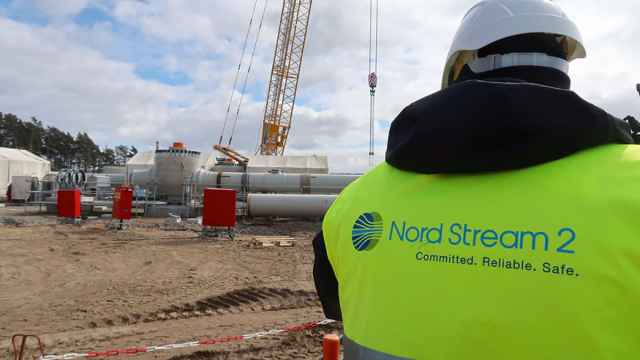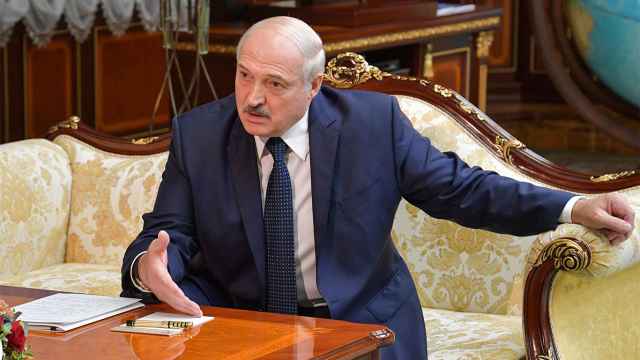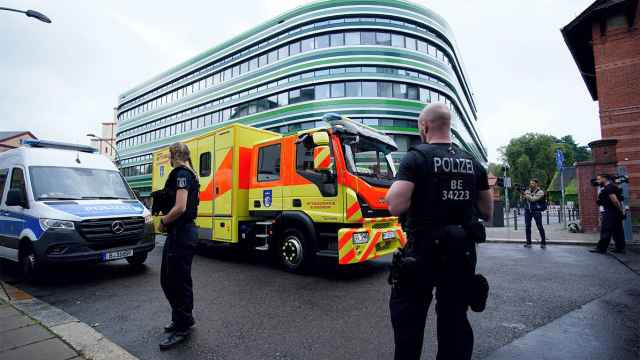The medical journal The Lancet has published Tuesday a case report detailing Russian opposition leader Alexei Navalny’s treatment in Germany following his poisoning with the Novichok nerve agent.
Doctors at Berlin’s Charité clinic, where Navalny was flown two days after falling suddenly ill on a flight in Siberia in August, diagnosed him with severe poisoning. Germany announced two weeks later that its military lab identified a nerve agent from the Novichok group as the poison, a finding confirmed by the global chemical weapons watchdog.
Navalny arrived at the clinic’s intensive care unit around 55 hours after the onset of symptoms, deeply comatose with an abnormally slow heart rate, hyperactive muscle stretch reflexes and decreased brainstem reflexes, his treating doctors wrote in the report titled "Novichok nerve agent poisoning."
After 10 days of treatment with the atropine antidote, Navalny began breathing spontaneously on day 12 and was weaned from mechanical ventilation by day 24, they wrote.
“He gradually recovered from a delirium and was mobilized and transferred to a regular hospital ward on day 26,” the authors wrote. Navalny was discharged on Sept. 23 and is currently in rehabilitation in Germany.
“At the last follow-up visit on day 55 we found near-complete recovery of neurological, neuropsychological and neurophysiological findings without evidence of polyneuropathy,” the case report said.
The report confirmed that the first two to three hours of intubation and mechanical ventilation after Navalny fell ill in Siberia on Aug. 20 were “decisive” in contributing to a “very favorable outcome.” However, the report said it is “unclear” whether atropine therapy administered by Russian doctors during the first two days of treatment saved Navalny’s life.
Charité said it agreed to The Lancet’s request to publish a case report with the Kremlin critic's consent.
The clinical course report follows the release this week of Navalny’s viral YouTube video of a phone call with one of his alleged poisoners. In it, an alleged Federal Security Service (FSB) chemical warfare expert admits to being dispatched on a clean-up operation to remove traces of the poison from his clothes. The purported FSB agent also said he believes Navalny survived the poisoning due to his Moscow-bound flight’s emergency landing in Siberia that allowed his immediate treatment.
The Kremlin denies that Navalny was poisoned and accuses its European counterparts of withholding evidence and thus keeping Russian authorities from opening a criminal investigation.
Navalny called the publication in The Lancet “proof of the poisoning that Putin keeps demanding.”
A Message from The Moscow Times:
Dear readers,
We are facing unprecedented challenges. Russia's Prosecutor General's Office has designated The Moscow Times as an "undesirable" organization, criminalizing our work and putting our staff at risk of prosecution. This follows our earlier unjust labeling as a "foreign agent."
These actions are direct attempts to silence independent journalism in Russia. The authorities claim our work "discredits the decisions of the Russian leadership." We see things differently: we strive to provide accurate, unbiased reporting on Russia.
We, the journalists of The Moscow Times, refuse to be silenced. But to continue our work, we need your help.
Your support, no matter how small, makes a world of difference. If you can, please support us monthly starting from just $2. It's quick to set up, and every contribution makes a significant impact.
By supporting The Moscow Times, you're defending open, independent journalism in the face of repression. Thank you for standing with us.
Remind me later.


